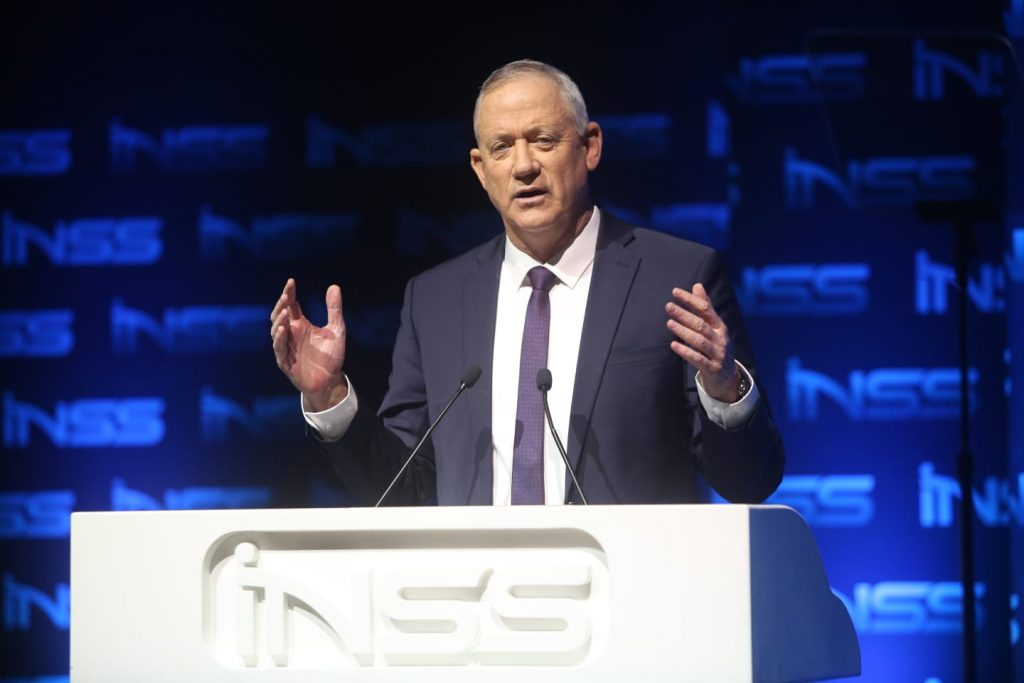Publications
INSS Insight No. 1402, November 22, 2020
In December 2016, the Knesset approved shortening compulsory military service for men from 32 to 30 months for conscripts who enlist from July 2020. However, the IDF continues to operate according to the 32-month service framework, and based on professional military considerations, seeks to amend the law and restore the 32-month service. According to a Knesset communiqué, the Minister of Defense “has yet to formulate his position on the issue.” An informed response to the IDF’s position must tackle numerous considerations, but it is time for the political echelon to decide this matter; any disparity between the law and the IDF’s human resources planning is unwarranted and may infringe on the rights of conscripts. Another fundamental issue is at stake here: the constraints on the “people’s army” model are growing, given the steady increase in the number of those who choose not to serve in the IDF, or are exempted from military service for physical or mental health reasons. This might lead to diminished motivation among other recruits to serve in the IDF. Therefore, the government should establish a public committee to address all the aspects related to this issue.
In March 2018, the IDF began discharging male soldiers after 32 months of service, with the length of compulsory service was shortened from 36 months. In July 2020, another two-month service cut took effect, so that conscripts are now supposed to serve 30 months. Since July 2015, military service for men has been shortened by a total of 6 months.
On November 1, 2020, the IDF representative who appeared before the Knesset Subcommittee for IDF Personnel, chaired by Maj. Gen. (ret.) MK Orna Barbivai (Blue and White), stated that, "We continue to operate according to the 32-month service framework," not the 30-month framework stipulated by law. He said this is due to a shortage of manpower in the cohorts most needed by the IDF, stemming from two reasons:
- The demographic increase in the number of potential recruits is offset by a sharp increase in physical and mental health exemptions from service, which causes significant difficulties in assignment, including to combat units. This, he stated, is related to a growing trend among potential recruits to regard other values as superior to that of military service in general and combat units in particular. He added that in the long term this may jeopardize the “people's army” model. He also reported that the IDF is considering advancing legislation that would make it possible to offer incentives to soldiers in elite combat units to help reverse this trend.
- The cutting of two additional months of service as stipulated by law will impair the military's ability to fulfill its missions, particularly as far as the combat operations are concerned. The additional cuts will harm the effectiveness of the training and hence the level of preparedness. Consequently, the IDF informs the new conscripts that an amendment to the law may apply in their case, so that they may serve 32 months, and not 30 months as the current law dictates.
At the Knesset committee meeting a Defense Ministry representative claimed he had no definitive answer on the matter. "The legal situation is known to the Defense Minister, and in the absence of a change in the law, the IDF should prepare for 30 months of service for men. No decision has been made to promote an amendment, and no action will be taken on the matter until it is examined and the Minister's decision is made.” He noted that the examination of the issue is still underway, but more urgent matters, such as the coronavirus pandemic, urgent security issues, and the complex political situation, have higher priority.

Chairman Barbivai called on the Defense Minister to formulate a fact-based, concrete answer about the length of military service: "We would have preferred to have an orderly process of shaping a vision for the future of military service, but security needs are here and now, and the military raised a red flag suggesting it cannot fulfill its missions. We can’t wait for the political chaos to be resolved."
Significance
The IDF seeks to withdraw its prior consent to shorter compulsory service. The IDF's commitment to accept the 30-month service is based on a clause in a November 2015 agreement between then-Defense Minister Moshe Ya'alon and then-Finance Minister Moshe Kahlon, which established an agreed-upon framework for the principles of a long-term defense budget. That clause stipulated the 30-month military service and has been widely acknowledged since its adoption five years ago. But the IDFs current multi-year plan, "Momentum," yet to be approved by the government, raises concern that the 30-month service duration falls short for meeting the IDF’s current and future needs. The new plan focuses on upgrading the IDF units’ combat and technological capabilities, regarded by the army’s top echelon as more demanding than those in the previous five-year plan, especially vis-à-vis the growing threats from Iran, Syria, and Hezbollah.
The manpower shortage noted by the military is not about the overall number of conscripts. Rather, it focuses on the shortage of soldiers in the particularly needed categories of combat units, technological assets, and other formations directly related to combat support. In some domains the IDF probably has surplus manpower. While shorter service in the preferred units may impact negatively on the combat capabilities of both regular and reserve units, shorter compulsory service has significant civilian economic and social value.

As for the political echelon, particularly the Defense Minister, this issue represents a complex dilemma. On the one hand, the MOD must consider the Chief of Staff's demands seriously, since he has the responsibility for planning and implementing the IDF’s force buildup. On the other hand, revoking the existing legislation on this issue at the IDF’s demand might be regarded as an infringement of the military’s legally required submission to the political authority. This improper situation, which may infringe on the right of conscripts planning their post-military future, must be ended. A decision on this matter – whether to amend or to uphold the current law – must be made soon, and the existing uncertainty must end, for the sake of both soldiers and civilians. Uncertainty creates a sense of void, which may damage the trust of IDF conscripts and consequently lessen further the motivation of potential soldiers to serve, thus exacerbating the manpower challenge. This is especially true at the present time, as the government has failed to enact a state budget for 2020, including the defense budget, and has not yet seriously begun preparations for the 2021 budget.
Beyond this tangible specific issue, the "elephant in the room" is the IDF's overall enlistment policy and the extent to which it continues to fulfill the principles of a “people's army." About half the civilians of conscription age do not enlist and serve – an alarming and growing figure. The government would do well to establish a public committee including the Defense Ministry, the National Security Council, civilian ministries, and public representatives, to examine the length of compulsory service and possible new models to address the growing gap between conscripts and non-conscripts. In the meantime, options for further incentives to serve in combat units should be positively considered.



